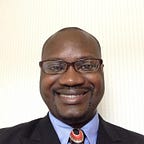Seeing religions and cultures through the eyes of my grandfather
We called him Bai Dani, Bai being an honorific word for grandfather or father in Ondo dialect, and Dani is a shortened form of Daniel. Like his compeers at that time, it was imperative that a newly baptized Christian must adopt a new, Christian name. Hence, he got “Daniel”, possibly given to him by one of his relations who was a Reverend at the Anglican Communion where he took a vow to live his life according to the new, Judeo-Christian religion that missionaries from faraway places had brought to his homeland.
Unlike biblical Daniel
However, unlike biblical Daniel who firmly withstood the imposing, scary figure of King Nebuchadnezzar of Babylon to profess his staunch faith only in Yahweh, ironically, my grandfather tread softly on all matters relating to religions.
He might have cherished his newfound religion, judged by his constant attendance of Sunday services and his active participation in Easter, Christmas, and other events that are considered to be expedient of followers of Jesus Christ. For every single day, and for all 365 or 366 days, he would be the first person to wake up in the wee hours of morning, usually somewhere between 5 a.m. and 6 a.m. to offer prayers and rehearse some biblical verses. I cannot clearly recall nor have ever asked if he used to include all his children and wife in the prayer sessions when he was younger, but as he advanced in age, he conducted the prayers alone, while praying for the well-being of every member of his family.
Despite his seeming devotion to this new religion, he held firmly on to his initial religion of Ogun-worshipping. In Yoruba traditions, Ogun is regarded as the “god of iron”. If you are using anything made from metals, be it a car, spoon, farming tool, et cetera, you must pay homage to the god of iron so that your work can be blessed. My grandfather constantly poured libations to the small temple of Ogun he had set up inside his bedroom. He observed the annual Ogun Festival in Ondo Kingdom with equal reverence he had accorded any other type of religion.
Even though he lived all his life in the South-Western part of Nigeria, which is still considered to be predominantly “the Christian South”, with a few number of indigenous Muslims, he did have robust interactions with one or two Muslims that happened to live in his surroundings. One of them was a demure, very humble man popularly referred to as Alhaji, who lived some blocks away. During the yearly Muslim celebrations such as Eid-al-Fitr, Alhaji would distribute chunks of mutton from one household to another. But instead of slamming the door shut in his face, as a Christian, my grandfather would welcome him with open arms and exchanged warm pleasantries with him.
Cultural flexibility
As a self-reliant owner of some agrarian plantations, my grandfather utilized the services of several laborers, some of whom were Yorubas, Ibos, and people from Benue and Edo. He related with them on a personal level, tinged with constant air of amiability. He was never political; he wouldn’t bawl at you if you were a member of UPN, NPN, GNPP, PRP or whichever second republic political party. He seemed completely inured to terrible divisions and acrimony caused by religions and political affiliations.
He was well at home with anyone, irrespective of where they came from. Whenever he needed something to be done, he was willing to patronize anyone who could offer the best service based on merit and craftsmanship. From sewing his clothes to buying his shoes or supplying his palm-wine, anyone who could do it well, to best of their abilities would surely get his attention.
From time to time he bought “pulled” tea from some Hausas, whom he enjoyed chatting with using a smattering of Hausa language he understood. He was truly more fascinated with the theatrics of “tea-pulling” than the tea itself, because he would soon be dishing out most of it to the people around him.
An excerpt from a forthcoming collection of essays, tentatively titled “Not Divided by Religions”. This is to encourage more religious tolerance and discourage extremism that has threatened human co-existence and harmony.
